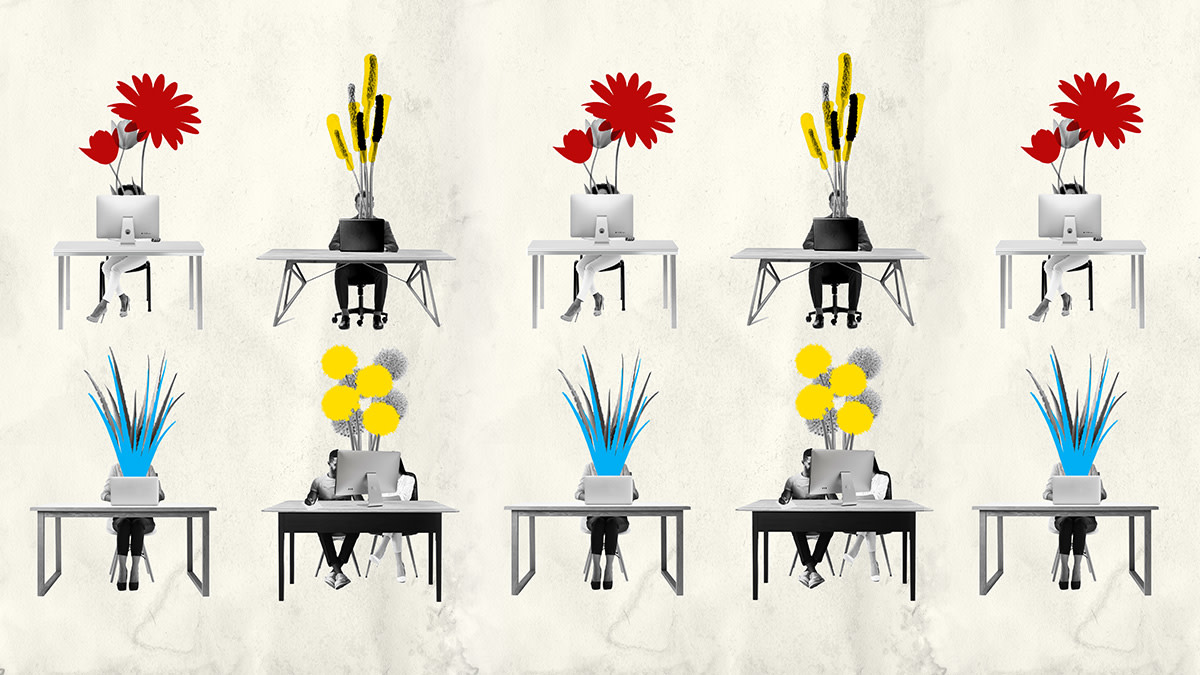Neurodiversity at Work: 5 Best Practices, 1 Rebel Billionaire’s Journey
Written by MasterClass
Last updated: Apr 3, 2023 • 4 min read
Corporate leaders are beginning to recognize that the world contains a vast range of cognitive experiences—and that their organizations should be built accordingly. Here’s how a growing number of neurodivergent people and their allies are quietly revolutionizing the workforce.
Learn From the Best
Merriam-Webster’s dictionary defines neurodiversity as “individual differences in brain functioning regarded as normal variations within the human population.” The term might be a relatively recent arrival to the corporate world, but neurodivergent leaders are not. Consider Richard Branson, head of the sprawling multinational brand known as Virgin Group.
As a young student, Richard struggled to read because of his dyslexia, a condition that affects the brain’s ability to identify speech sounds and how they relate to the written word. Experts had studied the condition since the late 1800s, but their research hadn’t found its way into the school system. As a result, classmates and teachers tended to view dyslexic kids as dim-witted or lazy. Richard endured frequent beatings from his teachers for his “poor classwork.”
Richard’s dyslexia made for a challenging education, but he came to see his neurodivergence as a wellspring of paradigm-shifting ideas and business smarts. As a student, he managed by learning to collaborate, taking copious notes, and developing other “compensatory skills,” to borrow a phrase from Julie Logan, a professor at the Cass Business School in London who has run studies on dyslexia in the workplace. The value of those skills became clear with Richard’s first business endeavors.
“Where others saw problems, I was able to see solutions,” he wrote in a 2022 blog post. “Insurmountable challenges became endless opportunities.”
The corporate world is beginning to embrace neurodiversity, including those with dyslexia, autism, Tourette syndrome, and ADHD (attention-deficit/hyperactivity disorder). Virgin, for one, has invested in Auticon, a Berlin-based IT and technology services firm that employs people with autism as technology consultants.
The work of inclusion begins early in the recruiting pipeline, as many neurodivergent people have skills that may not be apparent in a typical job interview. Blue-chip companies like SAP, Hewlett Packard Enterprise, Microsoft, Willis Towers Watson, and Ford have all made changes to their hiring processes in order to access more neurodiverse talent.
Make no mistake: There’s a long way to go. According to a 2022 study published by Deloitte Center for Integrated Research (a global data company), 85 percent of Americans on the autism spectrum are unemployed. So in order to reap the inherent benefits of a diverse workforce—while recruiting and retaining top talent—some companies are working to end exclusionary hiring practices, rethinking office environments, and more.
Rethink
The first step is to unlearn assumptions about how team members should behave and understand that dyslexia and other expressions of neurodiversity are not diseases or deficiencies. This shift in consciousness goes beyond office dynamics: In 2022, Richard and Virgin launched an awareness-raising campaign with the global charity Made by Dyslexia and the social media platform LinkedIn, which now allows users to add “dyslexic thinking” to their profiles—giving potential employers an opportunity to view dyslexia as an asset instead of a hindrance. The campaign also worked with Dictionary.com to add an entry for “dyslexic thinking,” framing it as a form of cognition rather than a disability.
Hire Smarter
The corporate hiring process can be woefully inadequate when it comes to identifying the full range of an applicant’s abilities. EARN—the Employer Assistance and Resource Network on Disability Inclusion, an organization funded by the U.S. Department of Labor—recommends that companies use job descriptions that clearly describe the work expected and avoid vague and potentially discouraging “nice-to-haves” like “strong communication skills.” When the time comes to interview candidates, EARN suggests conducting them in quiet environments that don’t overwhelm those who have certain sensory responses. Another option: swapping the interview for a trial work session, so people can showcase their work skills and worry less about social ones.
“Where others saw problems, I was able to see solutions. Insurmountable challenges became endless opportunities.” —Richard Branson
Support
Along with more neurodiverse hires, some companies are bringing in “social partners” (government or nonprofit orgs dedicated to partnering with neurodivergent people on the job) and organizational coaches to help with day-to-day issues that may go unnoticed by neurotypical employees. These groups can also encourage employees to form support groups and volunteer as “work buddies” who will advocate for their neurodivergent peers.
Train
Neurotypical employees and managers can undergo training modules that lay out the experiences and needs of their neurodivergent teammates. This training, plus a sustained commitment to its teachings, can help employees understand accommodations they may see around the workplace.
Personalize
EARN recommends that managers offer employees adjustments like flexible schedules, noise-canceling headphones, and gentle reminders of a company’s social principles. EARN also stresses that neurodivergent employees need to be the ones guiding any customizations to the work space, even if they aren’t clear at first on what those customizations should be.
Empirical evidence suggests that when companies invest in getting to know their applicants better and accommodating their individual needs once they’re hired, everyone benefits. Recognizing the power of neurodiversity is not only good for the bottom line; it’s a step toward a more equitable workforce.
